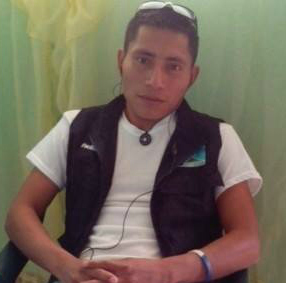Daniel Choc Pop was an indigenous Q’eqchi leader and campesino human rights defender from the community of San Juan Tres Ríos in Cobán, which he represented at the General Assembly of the Highland’s Committee of Peasant Farmers (Comité Campesino del Altiplano – CCDA). The CCDA is a national organisation committed to defending local sources of water used by indigenous communities and supporting the implementation of the Comprehensive Rural Development Law.
Daniel had a long trajectory as a community leader and worked to resolve land conflicts. Daniel had represented his community in meetings with State institutions responsible for resolving land conflicts since 2012, when his community began to seek legal title for the land on which they are living. As a regional representative of the CCDA, Daniel not only represented his community of San Juan Los Tres Ríos, but also a number of other communities in the regions of Alta Verapaz, Baja Verapaz and Izabal, zones at risk of forced evictions, death threats, intimidations and criminalization. He aimed to address social issues and attain the legal certainty of lands in this region for several rural and indigenous families as a result of land conflicts that prevail in the country.
Daniel had received political training by the UN High Commission for Human Rights in strategic litigation for emblematic cases, had participated in the 2012 Indigenous, Peasant and Popular March and the Water March in April 2016. In 2015, Daniel was one of the key organizers of the “Q’eqchi Community,” when more than 400 Q’eqchi families set up outside the Presidential House in zona 1 as a form of peaceful resistance with hopes to resolve the land crisis they face.
On 8 June 2016, Daniel was murdered in the afternoon by unknown individuals who shot him numerous times. Previously, on 30 March 2016, a group of men armed with firearms and machetes went to San Juan Tres Ríos where they announced that the owner of Rancho Alegre, Mr Germán Sierra Sorio, had authorised them to forcefully displace the community from the disputed land. The leaders of the community were threatened that they would be kidnapped and killed. Upon leaving the community, the armed men threatened to come back to kill all the residents. The following day, several residents of San Juan Tres Ríos filed a complaint with the Office of the Human Rights Ombudsman in Alta Verapaz requesting an investigation into the threats.
